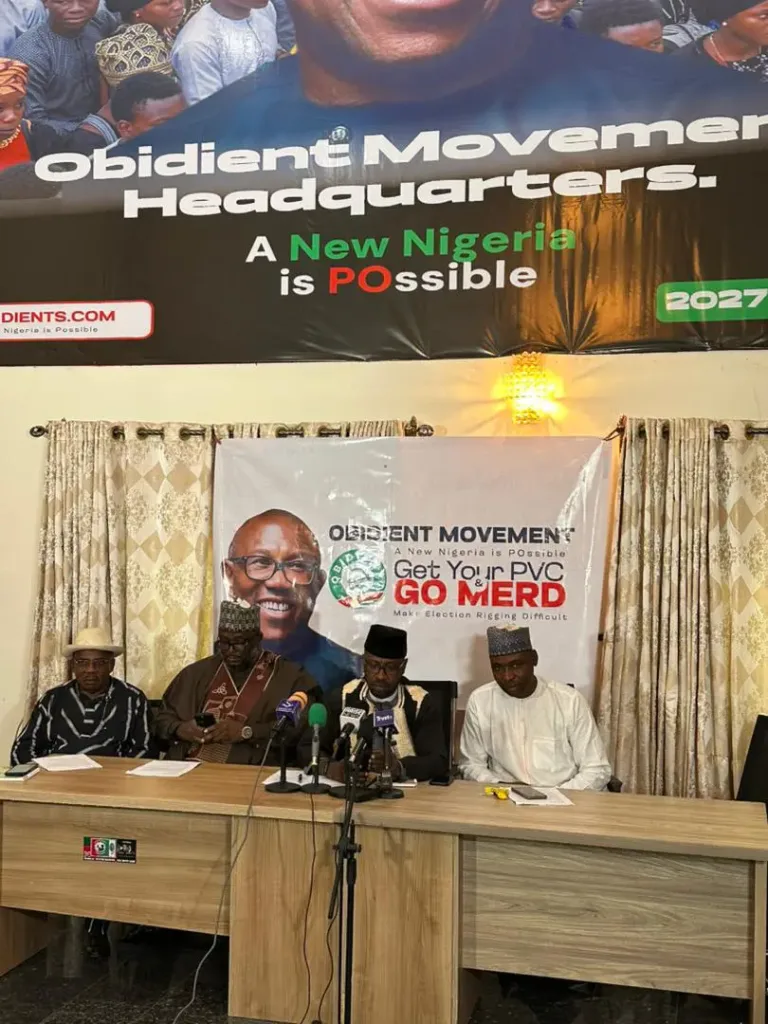Nigerian political advocacy group the Obidient Movement has launched a nationwide campaign urging citizens, particularly youths, to secure their Permanent Voter Cards (PVCs) ahead of the 2027 general elections. The initiative, branded “GO MERD” (Get Organised – Make Election Rigging Difficult), aims to strengthen electoral participation and combat irregularities through grassroots mobilization and voter education.
Announcing the campaign in Abuja, National Coordinator Yunusa Tanko framed the effort as a response to widespread demands for systemic reform. “A New Nigeria is possible if we prioritize organizing voters, protecting votes, and fielding competent leaders,” he said. The movement plans to establish voting blocs of 100 members per polling unit, targeting full PVC ownership within these groups through door-to-door outreach and logistical support for registration.
Emphasizing scale, Tanko outlined goals to train one million election monitors and deploy technology to safeguard results. The campaign also seeks to recruit 1,500 candidates aligned with its platform to contest local and national offices. These measures align with broader objectives to address economic hardship, insecurity, and infrastructure deficits—issues the group identifies as barriers to national progress.
“Our vision is a Nigeria where basic needs are met, opportunities are equitable, and citizens take pride in their country,” Tanko added, highlighting aspirations for affordable healthcare, improved education, gender equality, and diaspora reintegration. The message specifically resonated with younger demographics, who comprise 70% of Nigeria’s population and have historically shown fluctuating voter turnout.
To streamline participation, the movement launched Obidients.com, a portal for bloc organization. Tanko urged supporters to either obtain PVCs or assist 10 others in doing so, stressing collective action: “Change requires every citizen’s involvement—don’t assume others will lead.” The push comes amid lingering scrutiny of Nigeria’s electoral processes, with the 2023 polls marked by technical glitches, delayed results, and opposition claims of manipulation.
Analysts note the campaign’s early launch—nearly three years before elections—signals long-term strategy. However, success may hinge on sustaining public engagement and navigating Nigeria’s complex political terrain. With 93 million registered voters in 2023 and 37% youth unemployment, voter mobilization efforts could significantly influence the political landscape if turnout barriers are addressed.
The Obidient Movement, known for its tech-savvy base, has not disclosed funding sources but emphasized reliance on volunteers. As registration drives begin, the initiative’s focus on electoral accountability and civic education may set precedents for grassroots activism in West Africa’s largest democracy.
